
Groundwater
Scope & Guideline
Connecting Research and Real-World Applications in Water Science
Introduction
Aims and Scopes
- Hydrogeological Modeling and Simulation:
The journal frequently publishes research on various modeling techniques for groundwater flow and contaminant transport, including numerical and analytical methods, which are essential for predicting groundwater behavior under different conditions. - Groundwater Quality and Contamination:
Research related to groundwater quality, including assessments of contaminants such as PFAS, nitrates, and heavy metals, is a core focus. This includes studies on sources, transport mechanisms, and remediation strategies. - Aquifer Management and Sustainability:
The journal addresses issues related to sustainable groundwater management, including managed aquifer recharge, groundwater depletion, and the implications of climate change on aquifer systems. - Innovative Measurement Techniques:
The publication highlights advancements in measurement technologies and methodologies for groundwater monitoring, including remote sensing, geophysical methods, and citizen science approaches. - Interdisciplinary Applications:
Research that explores the interaction between groundwater and other environmental systems, such as surface water interactions, ecological impacts, and the socio-economic aspects of groundwater use, is emphasized.
Trending and Emerging
- Contaminant Fate and Transport Modeling:
There is an increasing emphasis on understanding the fate and transport of emerging contaminants like PFAS in groundwater systems, highlighting the need for advanced modeling approaches to predict their behavior. - Climate Change Impacts on Groundwater:
Research addressing the impacts of climate change on groundwater recharge and sustainability is gaining momentum, reflecting a broader concern for the resilience of aquifer systems in a changing environment. - Integration of Citizen Science:
The incorporation of citizen science in groundwater monitoring and data collection is on the rise, leveraging community engagement to enhance data richness and public awareness. - Technological Advancements in Groundwater Monitoring:
Innovations in measurement technologies, including remote sensing and geophysical techniques, are being increasingly highlighted, showcasing the evolution of tools available for groundwater research. - Interdisciplinary Approaches to Groundwater Management:
There is a growing trend towards interdisciplinary research that integrates hydrology with social sciences, economics, and environmental policy, reflecting a holistic approach to groundwater management.
Declining or Waning
- Historical Groundwater Studies:
There has been a noticeable reduction in studies focused on historical groundwater data and its implications, possibly as more contemporary issues take precedence over historical analyses. - Basic Hydrogeological Principles:
Papers that delve into fundamental hydrogeological concepts and principles seem to be less frequent, as the field has advanced and researchers are now more focused on complex, applied problems. - Local Case Studies:
The frequency of localized case studies is declining, with a shift towards larger-scale analyses or global perspectives, reflecting a trend towards broader applicability of research findings. - Traditional Groundwater Resource Assessments:
Research centered on conventional groundwater resource assessments is waning, possibly due to the growing emphasis on sustainability and integrated water resource management.
Similar Journals

GEOSCIENCES JOURNAL
Fostering Collaboration in Geosciences for a Greener Tomorrow.Welcome to the GEOSCIENCES JOURNAL, a pivotal publication in the fields of Earth and Planetary Sciences and Environmental Science, proudly presented by the Geological Society of Korea. Established in 1997, this journal has become a prominent platform for researchers, professionals, and students, offering a rich collection of peer-reviewed articles that explore a diverse array of geoscientific topics. With an impressive Q2 ranking in both Earth and Planetary Sciences and Environmental Science categories for 2023, it stands as an essential resource in the academic community. Though it operates under a traditional subscription model, GEOSCIENCES JOURNAL remains dedicated to advancing knowledge through rigorous research. Addressed from its headquarters in Seoul, South Korea, the journal aims to foster a deeper understanding of geosciences, encouraging innovation and collaboration in tackling today’s environmental challenges.
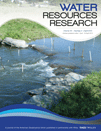
WATER RESOURCES RESEARCH
Driving Impactful Discoveries in Water ResourcesWATER RESOURCES RESEARCH, published by the American Geophysical Union, stands as a premier journal in the field of environmental science, specifically within the domain of water science and technology. With an impressive impact factor and a categorical ranking of Q1 for 2023, it ranks within the top 10% of relevant journals, evidencing its critical role in advancing the knowledge and application of water resources research. Since its inception in 1965, the journal has been dedicated to rigorous research that addresses pressing global challenges related to water resource management, hydrology, and environmental sustainability. The journal's comprehensive publication scope aims to present innovative findings and methodologies that can shape effective policies and practices. Although it does not offer open access, the robust research it publishes continues to influence academics and practitioners alike, ensuring its position as an essential resource for anyone engaged in the pursuit of water-related knowledge and solutions.

Natural Resources Research
Leading the way in environmental research and resource management.Natural Resources Research is a premier academic journal that plays a vital role in advancing the field of environmental science, particularly in the management and sustainable use of natural resources. Published by Springer, the journal boasts an impressive impact factor and is currently ranked in the Q1 quartile for Environmental Science, reflecting its significant contribution to knowledge and research in this domain. With a notable ranking of #21/233 in the general environmental science category and a remarkable 91st percentile, it serves as a reputable platform for researchers, professionals, and students seeking to publish and access high-quality research. The journal's archival span from 1996 to 2024 underscores its longstanding commitment to addressing pressing environmental issues, facilitating robust discussions on natural resource policy, conservation strategies, and innovative technological advancements. While the journal is not open access, it ensures wide dissemination of its content, bolstering the critical dialogue necessary for enhanced understanding and action in the field. Natural Resources Research continues to be an essential resource for those dedicated to sustainability and the responsible stewardship of our planet's resources.
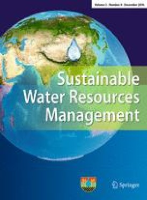
Sustainable Water Resources Management
Exploring the nexus of water, energy, and sustainability.Sustainable Water Resources Management is an esteemed journal focusing on the critical field of water resource management in the context of sustainability. Published by Springer International Publishing AG, this journal serves as a vital platform for researchers, policymakers, and practitioners to disseminate cutting-edge research and innovative practices aimed at addressing global water challenges. With an impressive impact factor aligned with its Q2 ranking in Water Science and Technology and Q3 in Renewable Energy, Sustainability, and the Environment, it maintains a robust reputation in its field, evidenced by its Scopus rankings. Covering a diverse range of topics from integrated water resource management to the nexus between water and energy, Sustainable Water Resources Management is committed to fostering knowledge exchange and encouraging interdisciplinary dialogue among its audience. This journal, operating under strict academic rigor, plays an essential role in advancing sustainable practices and is open from 2015 to 2024, making it a relevant resource in today’s rapidly evolving environmental context.

Geofizika
Innovating Earth Sciences with Every IssueGeofizika, an esteemed journal published by the Andrija Mohorovičić Geophysical Institute at the University of Zagreb, presents a significant platform for research in the fields of geophysics and Earth sciences. With an Open Access model established since 1984, this journal ensures that scientific knowledge is accessible to a broad audience, encouraging collaborations and the free exchange of ideas. Geofizika has steadily evolved through its converging years from 1989 to 1999 and has been active from 2003 to the present, reflecting its commitment to advancing geophysical research. The journal has been recognized for its contributions to Earth and Planetary Sciences and has acquired respectable ranks in various categories; notably, it holds a Q4 status in Geophysics as of 2023. Researchers, professionals, and students will find Geofizika a valuable resource for the latest discoveries and methodologies in geophysics, supporting the academic community in expanding the frontiers of knowledge in these vital scientific domains.

Journal of Hydrology-Regional Studies
Shaping the future of water science through collaboration.Journal of Hydrology-Regional Studies, published by ELSEVIER in the Netherlands, stands as a leading open-access platform since 2014 for disseminating high-quality research in the fields of hydrology and water management. With an impressive impact factor and recognition as a Q1 journal in both Earth and Planetary Sciences and Water Science and Technology categories, it emphasizes regional studies that advance understanding of hydrological processes and their implications for sustainable management practices. The journal has established a significant global reach, evident from its Scopus rankings, which place it in the top percentiles within its disciplines, fostering a dynamic exchange of ideas among researchers, professionals, and students alike. By mobilizing critical insights and innovative solutions in hydrology, this journal aims to contribute to solving the pressing water-related challenges faced by our society.

Journal of Himalayan Earth Sciences
Bridging Global Research on Himalayan Earth DynamicsThe Journal of Himalayan Earth Sciences (ISSN: 1994-3237; E-ISSN: 2305-6959) is a distinguished publication by UNIV PESHAWAR, dedicated to advancing knowledge in the field of earth sciences, particularly as they relate to the Himalayan region. Established in 2013, this journal aims to provide a platform for researchers, professionals, and students to share original research findings, reviews, and innovative methodologies that contribute to the understanding of geological and environmental phenomena in this ecologically significant area. Despite being categorized in Q4 of the Earth and Planetary Sciences, the journal showcases valuable contributions to the scientific community and encourages submissions that delve into both the challenges and advancements within Earth sciences, with a particular focus on the unique geological structures and processes of the Himalayas. As an open-access journal, it ensures that research is accessible to a global readership, promoting collaboration and discussion among scholars and practitioners. The journal's operational base in Peshawar, Pakistan, places it at the heart of Himalayan research, making it an invaluable resource for those invested in earth sciences.
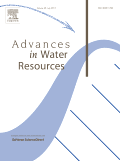
ADVANCES IN WATER RESOURCES
Unveiling cutting-edge methodologies for water management.ADVANCES IN WATER RESOURCES is a premier peer-reviewed journal published by Elsevier Science Ltd, dedicated to advancing the field of water science and technology since its inception in 1977. With an impressive Q1 ranking in the field, this journal provides a vital platform for researchers, professionals, and students to disseminate cutting-edge research that addresses critical issues related to water resources management, hydrology, and environmental sustainability. The journal offers a comprehensive collection of articles that explore innovative methodologies, policy implications, and case studies that shape the future of water resource management. Although it does not provide open access, its impactful contributions are recognized globally, making it an essential resource for anyone engaged in water science. The journal continues to publish relevant research while looking forward to bridging the gap between theoretical insights and practical applications up until 2024.
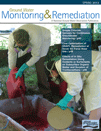
GROUND WATER MONITORING AND REMEDIATION
Advancing groundwater science for a sustainable future.GROUND WATER MONITORING AND REMEDIATION, published by WILEY, is a pivotal journal in the fields of Civil and Structural Engineering and Water Science and Technology, boasting an impressive Q2 category ranking according to the latest 2023 metrics. This esteemed journal aims to advance scientific knowledge and practice related to groundwater management and remediation strategies, providing a platform for researchers, professionals, and students to share groundbreaking findings and methodologies. With its extensive collection of peer-reviewed articles since its inception in 1981, GROUND WATER MONITORING AND REMEDIATION contributes significantly to the understanding and improvement of groundwater systems worldwide. Although it operates under a traditional subscription model, the accessibility of its high-quality content ensures that it remains a vital resource for those dedicated to addressing contemporary challenges in groundwater science. Adhering to strict academic standards, the journal is instrumental for professionals aiming to achieve excellence in the increasingly relevant field of environmental sustainability and water resource management.
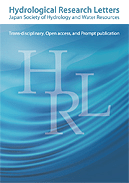
Hydrological Research Letters
Unlocking Knowledge: Pioneering Research in Water ScienceHydrological Research Letters (ISSN: 1882-3416) is a distinguished peer-reviewed journal published by JSHWR, JAGH, JAHS, JSPH in Japan. Established with open access since 2007, this journal serves as a critical platform for the dissemination of innovative research in the field of hydrology, water science, and technology. With an increasing impact factor, currently positioned in the Q3 quartile for both Earth and Planetary Sciences and Water Science and Technology, it attracts a diverse readership keen to stay abreast of groundbreaking findings that shape water management and environmental policy. Researchers, professionals, and students alike will find this publication an invaluable resource for enhancing their understanding of hydrological processes and their implications. The journal is committed to fostering open academic dialogue and encouraging high-quality contributions during its converging years from 2015 to 2024. For more information, authors and readers can access the journal at its address, C/O INT ACAD PRINTING CO, LTD, Shinjuku-ku, Tokyo, Japan.